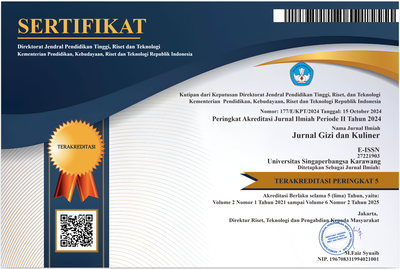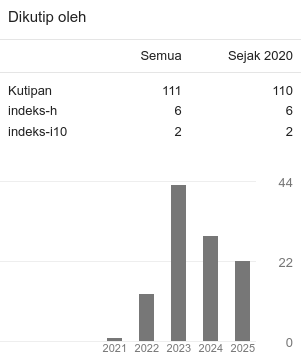Gizi Terpenuhi, Tumbuh Optimal; Studi Tentang Praktik MP-ASI dan Dampaknya Terhadap Kenaikan Berat Badan Anak Usia 6 – 23 Bulan
Abstrak
Background: Appropriate complementary feeding during the first 1,000 days of life plays a crucial role in a child's growth, including weight gain.Objective: This study aimed to examine the association between complementary feeding practices and weight gain among children aged 6–23 months in the working area of Lambale Public Health Center, North Buton Regency Methode: This cross-sectional study used secondary data from nutrition reports of children aged 6–23 months at Lambale Health Center. Complementary feeding practices were assessed using Ministry of Health indicators. A total of 112 children were selected using total sampling. Bivariate analysis was conducted using the chi-square test. Results: There was a significant association between complementary feeding practices (p = 0.001; OR = 4.11) and feeding frequency (p = 0.003; OR = 3.59) with weight gain. Conclusion: Children with appropriate complementary feeding practices were four times more likely to experience weight gain than those with inappropriate practices. Children with adequate feeding frequency were three times more likely to gain weight. It is recommended to provide continued assistance and support to caregivers in implementing proper complementary feeding practices to optimize child weight gain.
Keywords: Complementary feeding, Children aged 6-23 months, Infant and Young Child Nutrition, Weight gain














